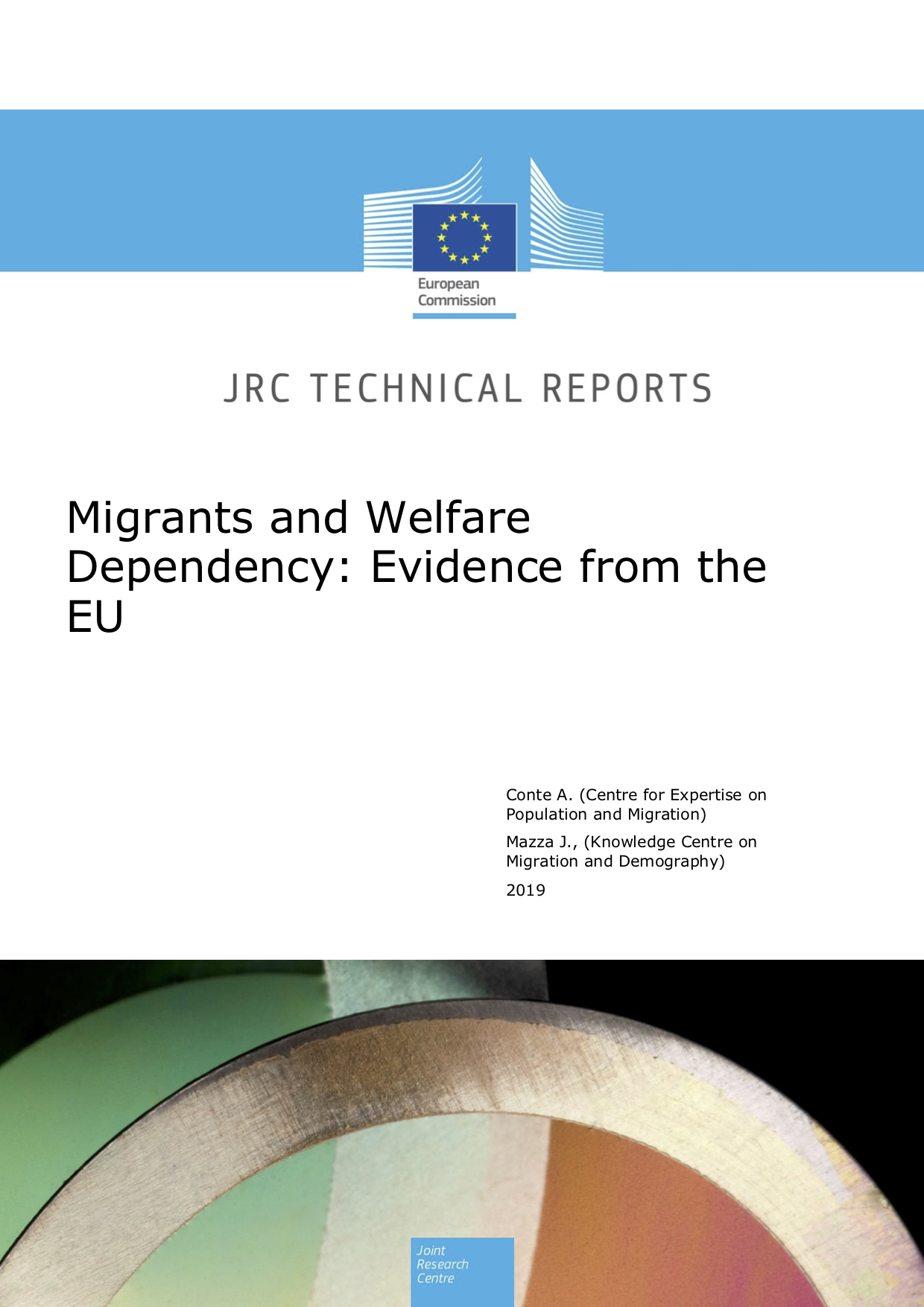By exploiting three waves of EU-SILC data on benefit receipt, this technical report analyses how receipt of welfare benefits differs between natives and Extra-EU immigrants for 20 EU countries. Our results suggest substantial heterogeneity in welfare dependence of immigrants between countries when not controlling for observed characteristics of immigrants and natives. The analysis of unconditional dependence shows that being an Extra-EU immigrant is associated with a lower probability of receiving contributory benefits. With respect to non-contributory benefits, the picture is quite different, as most countries show a greater welfare dependency of Extra-EU immigrants compared to natives. Controlling for observable characteristics between natives and immigrants reduces the gap in probabilities for almost all countries in the analysis, thus suggesting that the heterogeneity in welfare dependence is mainly driven by differences in demographic characteristics between the two population groups. Age, gender, family size, and the level of education, both for contributory and non-contributory benefits, play an essential role in explaining the gaps in probability, and once these characteristics are controlled for, Extra- EU immigrants receive social benefits as often as natives in most countries.
| Year of publication | |
| Originally published | 10 May 2019 |
| Knowledge service | Metadata | Migration and Demography |
Share this page

